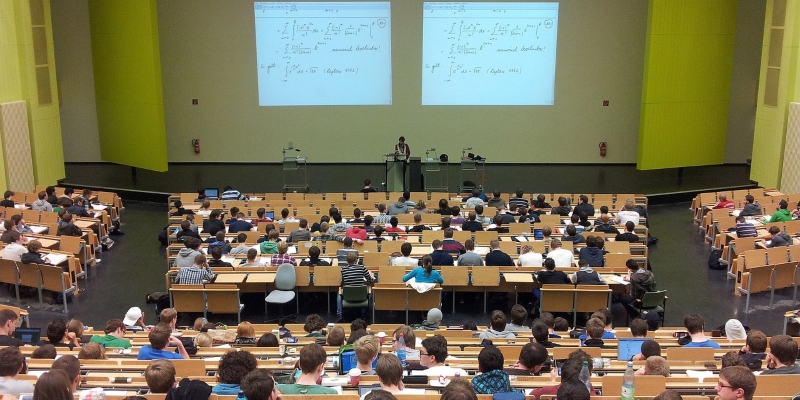
July 4, 2024, by Jackie Thompson
To academia or not to academia?
By Chloe O’Dowd, philosophy PhD student. Image by Nikolay Georgiev from Pixabay
As a third-year PhD student, life post-degree is looming closer. This means that I have to start thinking about whether I would like a career in academia and what I would need to do in order to be successful. In this blog, I talk about what you might need to do to gain an academic job.
Publications
Publications are often seen as important for academia. This means writing an academic paper, perfecting it, and sending it to a publisher in the hope that they like it. Spoiler alert; nine times out of ten, they will not. Also, it can take months for them to tell you. Paper publishing is very much a game of patience and hope. There is also the politics of where to publish your paper; it is better to have one paper in a top journal than to have hundreds in sub-par journals.
I wish to note here that while publications are required in certain subjects and desirable for others, you can get an academic job without these. Institutions are now seeking a more holistic approach to recruiting researchers, which means more focus on public engagement, outreach and departmental involvement. So, think widely about your experience in your postgraduate research journey.
Teaching experience
Another important element in gaining an academic career is teaching experience. There are a few ways one can go about getting this experience.
The first is that as a PhD student, there can be opportunities to teach undergraduates, primarily in your subject area. They are a great way to gain experience in teaching at a university and to get HEA accreditation to help applications in the future. Do be aware, however, that departmental TA positions can be difficult to come by, as not every university can guarantee them. It is great if you can get one, but there are other ways to get a bit of experience without them
Another way one can get some teaching practice is through outreach and programmes such as the Brilliant Club. These will often involve working with children in schools in the local area. While this does not come with HEA accreditation, it does allow you to gain experience, which may still get you an academic job.
Practical tips
The Careers and Employability service has lots of resources designed to help you to get an academic job. There are webpages showing where you might find them, Jobs.ac.uk, being the most prominent.
Additionally, on the Careers website, there is help with writing academic CVs and guides for filling out application forms. They also offer appointments for CV and application reviews, mock interviews to help with your job preparation and they run events on various parts of the academic application process.
All these services are incredibly useful, especially if you are coming straight from a PhD and will not have necessarily had job application experience.
As well as what the Careers team offers, it is common for supervisors and other members of your department to offer to assist you in your job-hunting experience. They can do mock interviews with you and discuss the subject-specific knowledge you might need. There is so much help out there.
To academia?
While you can see that there are requirements for some academic jobs, such as having work published and having some teaching experience within a university setting, others will have a broader view of what you need.
My advice would be to take every opportunity you get; try to publish a paper and gain some teaching experience, but if you do not have these things, do not write yourself off. Academia is still an option. And if you need support in reflecting on the skills you’ve developed, talk to the advisers at the Careers and Employability Service.
Find out more about how the Careers and Employability Service supports postgraduate researchers.
No comments yet, fill out a comment to be the first

Leave a Reply